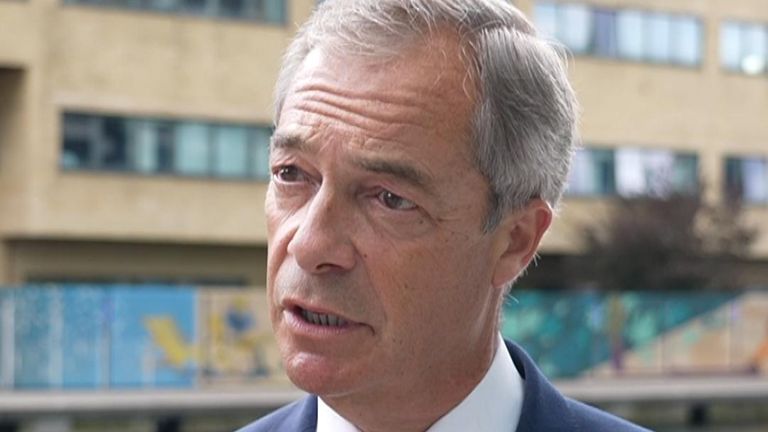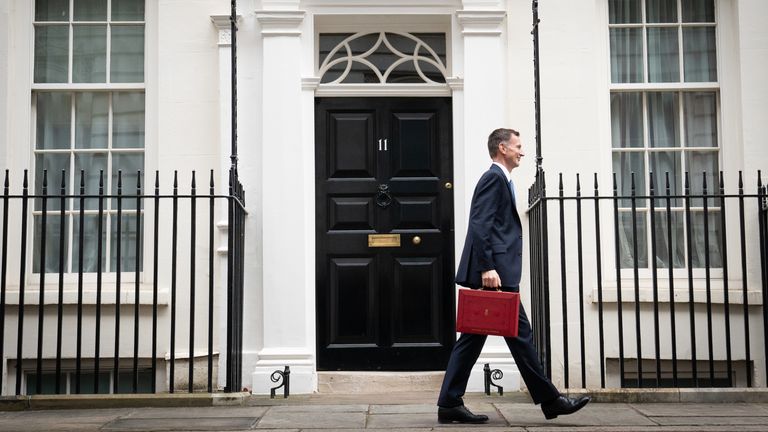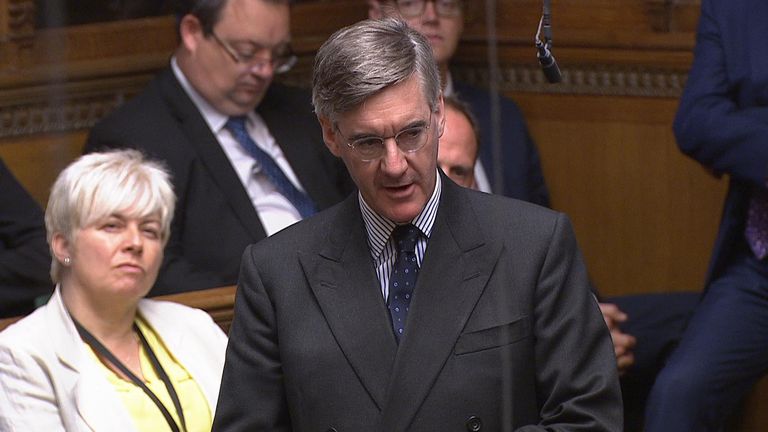Coutts bank hits back amid Nigel Farage account row


Coutts bank has said it does not close customer accounts “solely on the basis of legally held political and personal views” as it comes under heavy criticism for terminating its relationship with Nigel Farage.
A number of Conservatives publicly criticised the bank after the former Brexit Party leader claimed his account was closed down because his views did not align with the firm’s “values”.
In light of the row, the Treasury is preparing to force banks to give customers three months’ notice of account closures and to provide a full explanation.
Banks also face losing their licences if they close accounts because they do not agree with a customer’s political beliefs, amid concerns over free speech.
In a new statement issued on Thursday, a Coutts spokesperson acknowledged the “substantial interest” in the Farage case but said it could not comment in detail because of customer confidentiality obligations.
However, they stressed “it is not Coutts’ policy to close customer accounts solely on the basis of legally held political and personal views”.
“Decisions to close an account are not taken lightly and involve a number of factors including commercial viability, reputational considerations, and legal and regulatory requirements,” they said.
Strikes hit railways and NHS; parliament’s final day before summer recess – politics latest
“We recognise the critical importance of access to banking. When it became clear that our client was unable to secure banking facilities elsewhere, and as he has confirmed publicly, he was offered alternative banking facilities with NatWest. That offer stands.
Advertisement
“We understand the public concern that the processes for ending a customer relationship, and how that is communicated, are not sufficiently transparent.”
Please use Chrome browser for a more accessible video player
1:31
Farage: ‘I was shocked with the vitriol’
They added: “We welcome the anticipated HM Treasury recommendations in this area, alongside the ask to prioritise the review of the regulatory rules relating to politically exposed persons.
“We look forward to working with government, the regulator and the wider industry to ensure that universal access to banking is maintained.”
On Wednesday, Mr Farage described a document he claimed showed Coutts closed his bank account because of his political views as “prejudiced and nasty”.
The former Brexit Party leader claims he has a 40-page document that proves Coutts “exited” him because he is regarded as “xenophobic and racist” and a former “fascist”.
The former UKIP and Brexit Party leader said he was shocked by the “vitriol” within the document as he called for a change in legislation to ensure the right of an individual to open a bank account.
Please use Chrome browser for a more accessible video player

1:51
Banks face Treasury clampdown
He previously claimed that a subject access request he made to the bank, whose clients include members of the Royal Family, reveal it regards him as a PEP or “politically exposed person” – someone who holds or has held public office and therefore may be more susceptible to bribery or corruption.
He told Sky News: “It’s such a prejudiced, nasty document. It’s the metropolitan elite loathing the views of the many millions of us that live outside the M25.
Sky News has not seen the document in question.
Mr Farage claimed 10 banks have refused to open an account in his name, saying he may “effectively become a non-person” without a method of banking.
His complaints have been raised by a number of Conservative MPs, including former cabinet ministers Sir Jacob Rees-Mogg and David Davis.
Sir Jacob called for an inquiry and asked Rishi Sunak during prime minster’s questions if he shared his “unease” that the bank “should close the account of a senior opposition politician”.
Please use Chrome browser for a more accessible video player

1:27
‘Members of the opposition deserve bank accounts’
Mr Davis claimed Coutts’ actions amounted to “political discrimination”, and asked: “Can he require every bank with a British banking licence to inform the Treasury of all the accounts shut down for non-commercial reasons?”
In response, the prime minister said it “wouldn’t be right if financial services were being denied to anyone exercising their right to lawful free speech” and that the government intended to “crack down on this practice”.
The financial regulator, the Financial Conduct Authority (FCA), has also faced questions over the row.
Read more:
What are PEPs and are banks allowed to close their accounts?
Just Stop Oil: Activists ‘committed criminal damage’ by spraying government building, Grant Shapps says
Appearing in front of the Treasury Select Committee on Wednesday afternoon, FCA chair Ashley Alder said he was not “aware” of any regulatory rules that could have led to Mr Farage having his bank account terminated.
He said that while it was “fundamentally up to them [banks] who they do business with”, FCA-regulated firms “must treat people fairly”.
“Reputational considerations about who you take on as a customer are frequently cited in financial services industry, across investment banks right through to retail,” he added.
Nikhil Rathi, the FCA chief executive, also confirmed the regulator would be carrying out a review into PEP “to make sure those rules are being applied proportionally by banks”.
With regards to freedom of speech, Mr Rathi said anyone who felt they were not being treated fairly could complain to the financial ombudsman service.